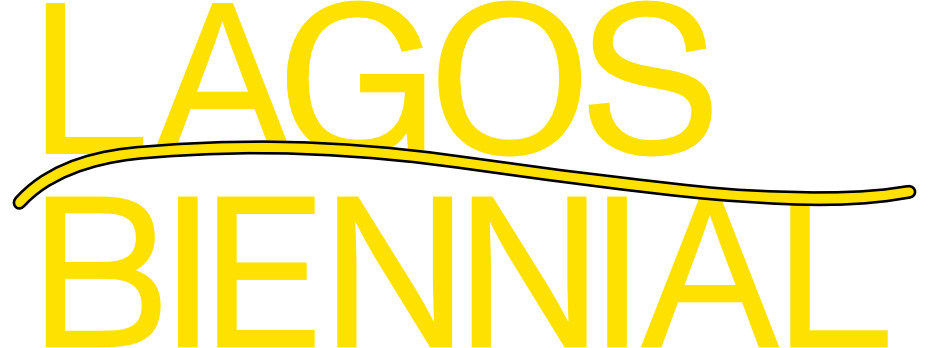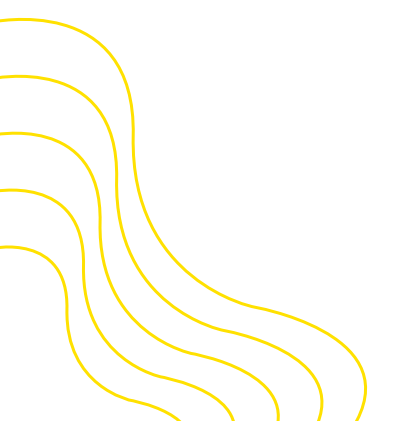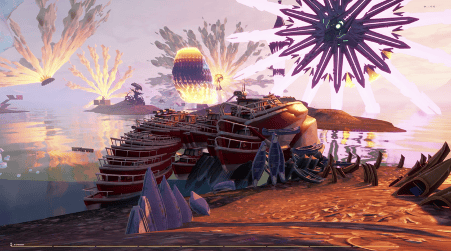
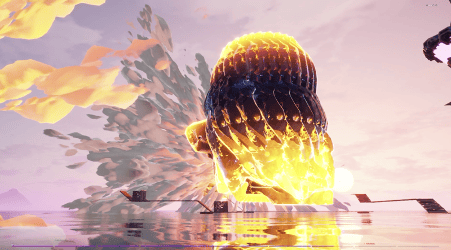
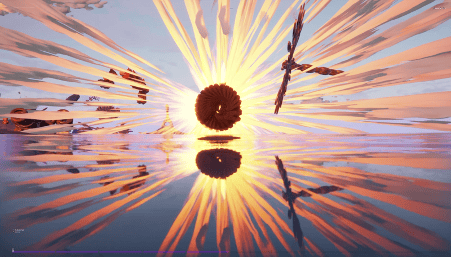
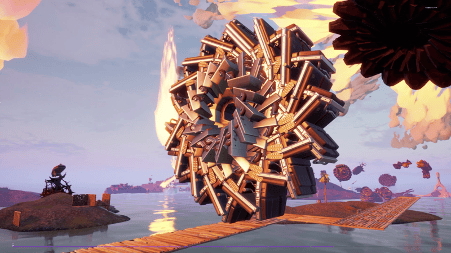
Sam Koegh, The Island (video stills) 2021, photo credit: Sam Koegh, Courtesy of the artist
Born Wicklow, Ireland (1985), lives and works in London, UK
The Island 2021
HD video, 28.43 mins
Courtesy of the artist
The production of this work was supported by Museo Madre, Naples.
In Sam Keogh’s The Island, his avatar – a whimsical ‘bushranger’ styled as a tree-being – leads the viewer through the technicolour cartoon dreamscapes of the massive online video game Fortnite. In the game, 100 players are parachuted onto a deserted island where they must scramble for resources and fight to the death, a task made more urgent by ‘The Storm’. The last one alive is the winner. The whole island sits in the eye of this storm which incrementally contracts, forcing players into confrontations with each other. Keogh’s narration draws connections between the game’s mechanics and the environmental impacts of its increasing membership. As islands and archipelagos around the globe, which still today evoke a colonial imaginary of pristine and uninhabited nature, are threatened by rising sea levels and ever more frequent extreme weather events, Fortnite’s popularity continues to rise. As a result, the game’s physical infrastructure of servers grows. These servers are stacked into data centres, often built as artificial floating islands off the coastlines of northern Europe. While millions of online gamers on ‘The Island’ hit ‘play again’ to test their individualist survival skills in the face of climate collapse, the off-line world increasingly replicates its dynamics as eco-fascist, survivalist positions gain currency.
Artist’s statement
In The Island, I’m trying to draw connections between the premise of Fortnite and ecofascist fantasies of a fight to the death in the context of climate collapse. An important text which helped me explore these intersections of desire, fantasy and video games was ‘Playstation Dreamworlds’ by Alfie Bown. Bown argues that video games (as fantasy worlds we inhabit, interact with and manipulate) are closer to dreams than texts. If this is the case, then the tools we need to understand and critique video games might be closer to psychoanalytic dream analysis. For psychoanalysis, the dream (or in this case, the game) is encoded with a hidden wish which might be brought to consciousness through the circuitous process of describing the dream and the associations it brings to mind. The Island attempts to use this idea as a lens to look at Fortnite through, drawing parallels between the things we do in Fortnite as players and the kinds of fantasies prevalent in ecofascist imaginaries.
Sam Keogh’s work is included in CAPTCHA.
